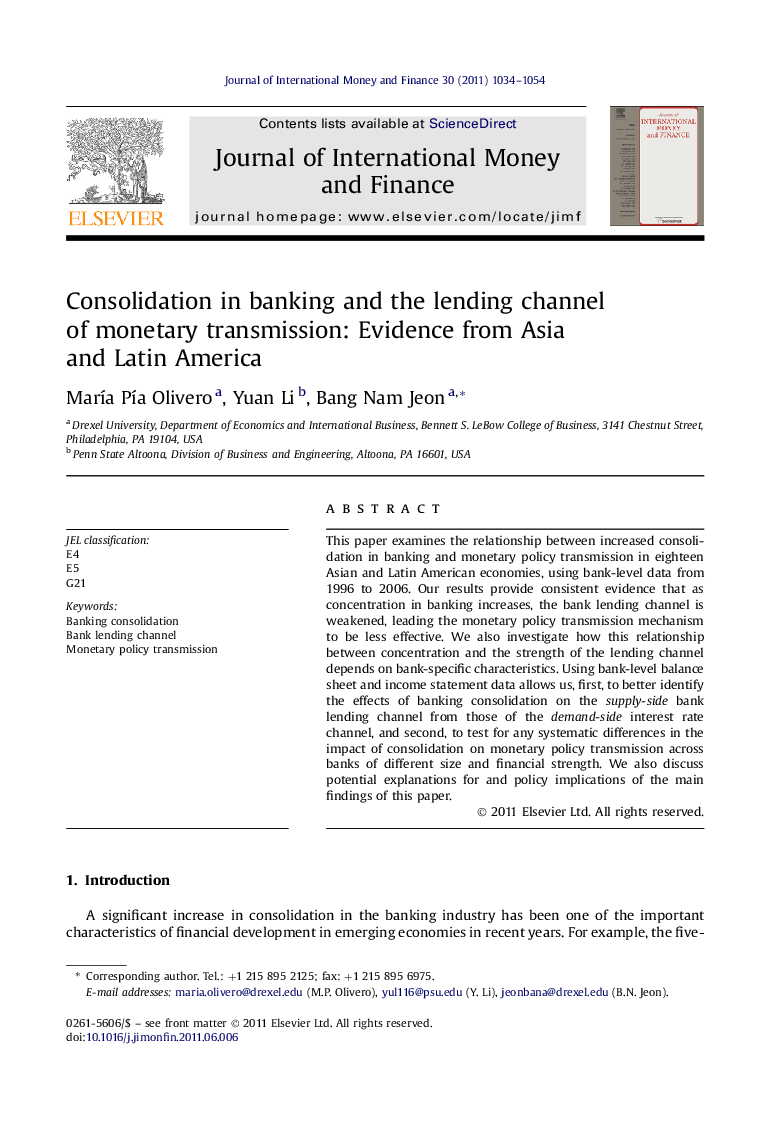| Article ID | Journal | Published Year | Pages | File Type |
|---|---|---|---|---|
| 964723 | Journal of International Money and Finance | 2011 | 21 Pages |
This paper examines the relationship between increased consolidation in banking and monetary policy transmission in eighteen Asian and Latin American economies, using bank-level data from 1996 to 2006. Our results provide consistent evidence that as concentration in banking increases, the bank lending channel is weakened, leading the monetary policy transmission mechanism to be less effective. We also investigate how this relationship between concentration and the strength of the lending channel depends on bank-specific characteristics. Using bank-level balance sheet and income statement data allows us, first, to better identify the effects of banking consolidation on the supply-side bank lending channel from those of the demand-side interest rate channel, and second, to test for any systematic differences in the impact of consolidation on monetary policy transmission across banks of different size and financial strength. We also discuss potential explanations for and policy implications of the main findings of this paper.
► The paper shows that as bank concentration increases, the bank lending channel is weakened. ► The paper also shows how concentration and the lending channel depend on bank-specific factors. ► Our results show that as bank concentration increases, monetary policy becomes less effective.
